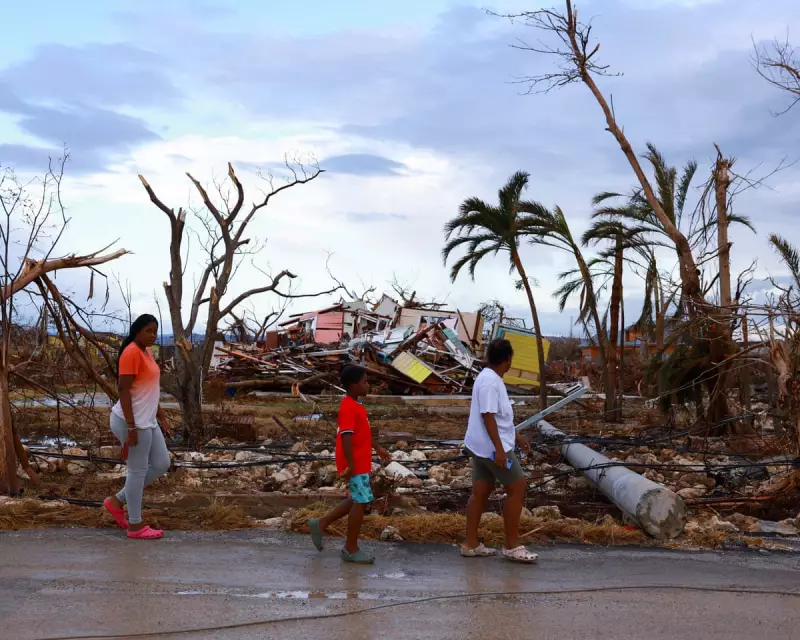
Caribbean Nations Bear Brunt of Climate Injustice
The devastating aftermath of Hurricane Melissa has left Jamaica facing a reconstruction crisis, with Prime Minister Andrew Holness estimating damage equivalent to one-third of the country's entire GDP. As Caribbean nations struggle to recover from 2024's successive storms, the stark inequalities of the climate crisis have never been more apparent.
Unprecedented Destruction Across Jamaica
Initial climate attribution studies reveal that last week's five-day rainfall in Jamaica was made twice as likely by higher global temperatures. The current death toll across the Caribbean stands at least 75, with communities remaining cut off due to widespread power cuts, severe flooding, building collapses and threatening food shortages.
Critical infrastructure across the region has been destroyed before loans used for its construction were even repaid, creating an unsustainable cycle of debt and reconstruction. Meanwhile, Typhoon Kalmaegi has claimed nearly 200 lives in the Philippines and Vietnam, with another typhoon predicted to hit the Philippines this weekend.
International Response Falls Dangerously Short
Despite close historical ties between the UK and Jamaica, the £7.5 million emergency fund promised by the British government has been widely criticised as completely inadequate given the scale of destruction. UN Secretary General António Guterres emphasised that countries facing the worst impacts of global heating are the least responsible, with historically low carbon emissions.
In a telling development, Prime Minister Holness will not attend the Cop30 climate talks in Brazil due to the severity of Jamaica's domestic crisis. The loss and damage fund created to support vulnerable nations is not expected to see significant progress during the current round of negotiations.
Small island states continue to advocate fiercely through the Alliance of Small Island States, having recently secured an important advisory opinion from the international court of justice highlighting the substantive legal obligations created by climate treaties.
Mr Guterres described the failure to maintain the 1.5C warming target - breached for two consecutive years - as a moral failure that reinforces profound global injustices. While the United States' withdrawal from climate agreements under Donald Trump represented a setback, other governments must not use this as an excuse for inaction.
The message from climate-vulnerable nations is clear: wealthier countries must not only accelerate their transition from fossil fuels but also recognise their shared responsibility to address the devastating consequences of global heating that are unfolding with increasing ferocity across the Caribbean and southeast Asia.





